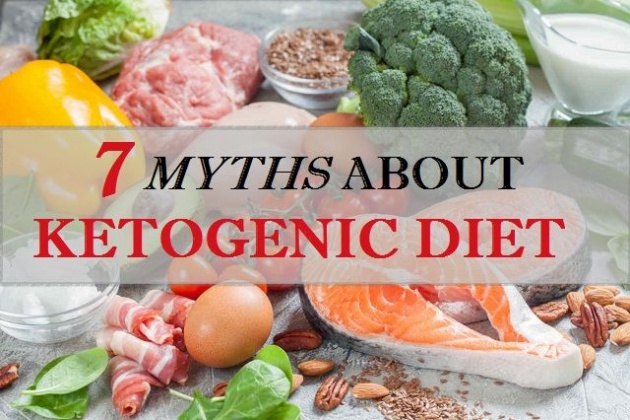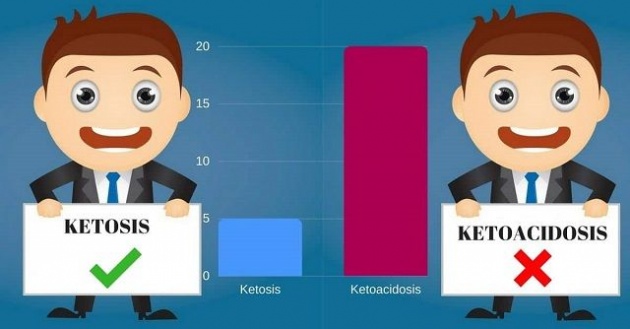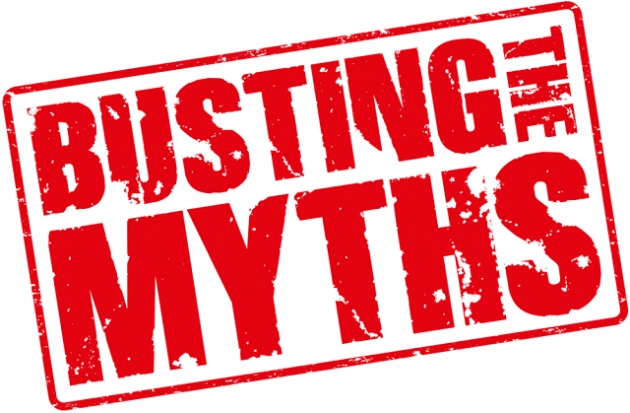Video Credit: BeerBiceps via Youtube

Image Credit: dLife / Edited via Photoshop
As you can see this is the third blog in my series of blogs about the ketogenic diet. For a quick recap, in my previous blogs, we discussed what the ketogenic diet is and its benefits. Here is a quick quote about what keto diet is.
The ketogenic diet or as it is also known as "keto diet" is a very low-carbohydrates, high-fat diet that offers many health benefits. It turns the body into a fat burning machine. This diet has been tried and tested by millions of peoples and it has been proven to help in weight loss, along with many benefits for health and performance.
Source: Eeza_1986
Keto diet is not a new concept and it has already gained popularity quite recently due to the various benefits gained from following this diet but as keto become more and more popular, do's and don'ts about it gets tossed around like a demented game of telephone. The longer it circulates, the truth about keto begins to become jumbled and it becomes harder to differentiate what is true and what is false.
Plenty of false information and myths has begun to sprout about the ketogenic diet and in this blog post, I'm going to talk about the 7 Myths About Ketogenic Diet.
Myth #1 You Can Eat Any Type of Fat In Keto

Image Credit: dailynutra
While the keto diet emphasizes eating fats instead of carbs, it doesn't mean that you can have a free pass to a fat-free-for-all buffet.
Although the keto diet emphasizes consuming fats as a substitute for carbs, it doesn't mean that all fats are healthy and should be used in the diet. Fats such as saturated fats can increase your cholesterol level, this, in turn, can lead to various heart health risks.
Instead of reducing your total fat consumption, it is better to replace saturated fats (i.e. bacon, sausages, ham, etc.) with unsaturated fats (i.e. fish, olive oil, walnuts, etc.) to help lower the risk of heart diseases.
Myth #2 Ketosis and Ketoacidosis Are The Same Thing

Image Credit: Ketovale
Just because ketosis and ketoacidosis sound the same does not mean that they are. To explain what ketosis is, let me quote my previous blog.
Ketosis is the metabolic state that your body enters into when there are not enough carbs for it to use as energy. By entering this state, the body will soon produce small fuel molecules called ketones.
Source: Eeza_1986
While Ketoacidosis refers to diabetic ketoacidosis (DKA) and is a complication most often seen in people with diabetes. This condition is the result of high levels of ketones and blood sugar with not enough insulin. This makes your blood acidic and can disrupt the normal functions of your internal organs most notably your kidneys and liver. Left untreated this condition can become life-threatening.
Allow me to reiterate, ketosis is not the same as ketoacidosis.
Myth #3 You Will Have Energy Deficiency On Keto

Image Credit: Collective Evolution
Another myth found on keto is that going on a keto diet can lead to a decrease in your overall activity. Both your physical and mental performance will decrease due to a lack of energy. Again, this is not true. Going on a keto diet does not lead to low energy levels.
Various research conducted has shown that after the body has adjusted to ketosis, fats are then used as a prime source of fuel for energy.
Initially, at the start of your keto diet, you might feel that your energy level to be lower than normal, but after three to five days, you'll go back to the energy level you had back when you were eating carbohydrates.
Myth #4 Carbs Are An Essential Nutrient

Image Credit: Abbott Family
In a keto diet, we minimize or even totally remove carbs from our diet.
And while carbs are eliminated from our diet, it doesn't mean that we are lacking in any essential nutrients. Since the keto diet only cuts down on carbs and glucose intake, it does not mean that you will become malnourished due to any deficiency in any essential nutrients.
A well-formulated keto diet menu already contains all the nutrients needed by your body to function optimally. All types of meat, vegetables, oils, eggs, fruits, and nuts are allowed in the keto diet, any essential nutrients from eating carbs can be found in this low-carb foods.
Adopting a ketogenic diet does not mean that we lose out in any essential nutrients needed by the body, in fact following keto can lead to a balanced diet.
Myth #5 You Don't Need Cheat Days On Keto

Image Credit: Pritikin
Another myth about keto is that unlike other diets, you shouldn't have cheat days while on keto. That again is a myth. When you're on keto, after around fourteen to fifteen days, your body will begin to lower your leptin levels.
Leptin is a hormone produced by the fat cells. Another name for this is the "starvation hormone." It is the hormone that tells your body that tells your body that it has enough fat stored and we no longer need to eat. Because the keto diet consumes fat as the body's main fuel, pretty soon your body will lower its leptin level because you are losing too much fat too fast.
As your leptin level lowers, your body will soon stop burning fat, this is where most people hit a plateau in their diet and feels that they can no longer continue. To continue your diet and break through this plateau, cheat days are needed in your keto diet to normalize your leptin level, make sure to have a refeed day and eat carbs once every twenty days is best, once every fourteen days is optimal, and if you can't, then once every seven days is also good.
Here is a short video about having a refeed day during keto.
Image Credit: BeerBiceps via Youtube
Myth #6 Keto Diet Is A Weight-Loss Diet Only

Image Credit: Forks Over Knives
True, keto diet has helped plenty of people lose weight and lead a more healthy lifestyle, but the truth behind keto diet is that it wasn't originally designed for weight-loss but as a medical therapy for patients suffering epilepsy. Keto is a diet that produces chemical products called decanoic acids which can help reduce and minimize seizures.
Myth #7 No Long-Term Studies

Image Credit: DariuszSankowski via Pixabay
In the last fifty years, experiments about carbs and fats have been ongoing. Not only that since keto was originally a medical diet therapy for epilepsy, long-term studies have been done to know more about its effects on the body. As keto begins to gain popularity among the masses, institutions such as the Cooper Institute, the University of California, the Buck Institute, and other similar institutions are now researching about the health benefits of keto on the body as well as its side effects.
Final Thoughts

Image Credit: Canna Care Docs
On a final note, I hope that after reading this blog, we have debunked some of the myths about the ketogenic diet that you have heard about. I hope that everyone can now look at keto diet with clear minds and eyes and that any negative information about keto has been enlightened.
Before you go, please take your time and answer this Querlo chat survey.
~oOOOo~vvvvv~oOOOo~
If you're not a Bitlanders member yet, sign up and click here.
You can post and earn $$$.
~oOOOo~vvvvv~oOOOo~
Thank you for taking your time and reading this!
Have a good day!
Written by Eeza_1986 for Bitlanders.



